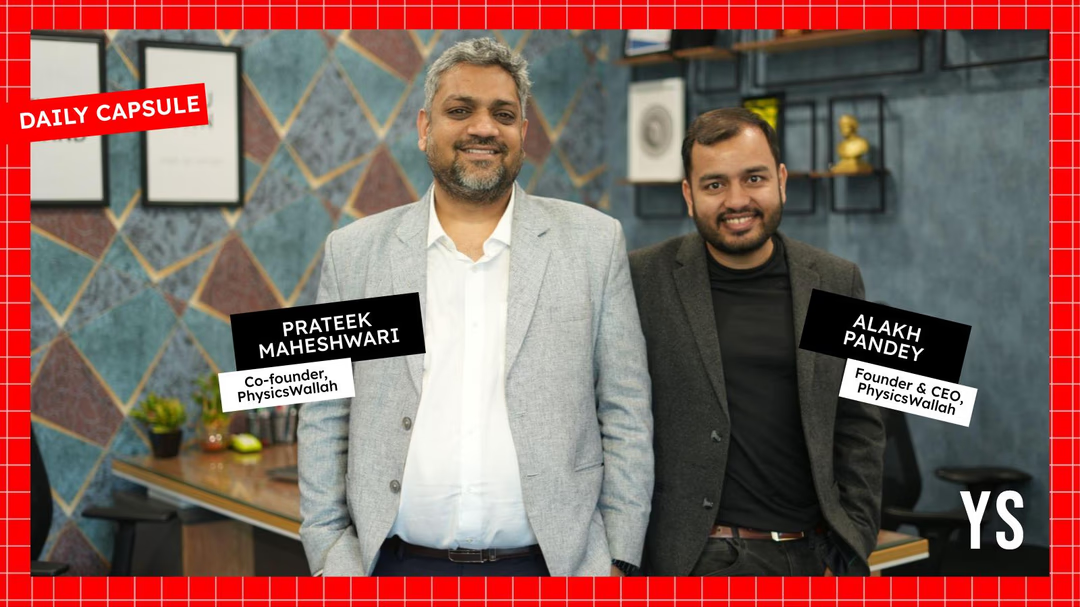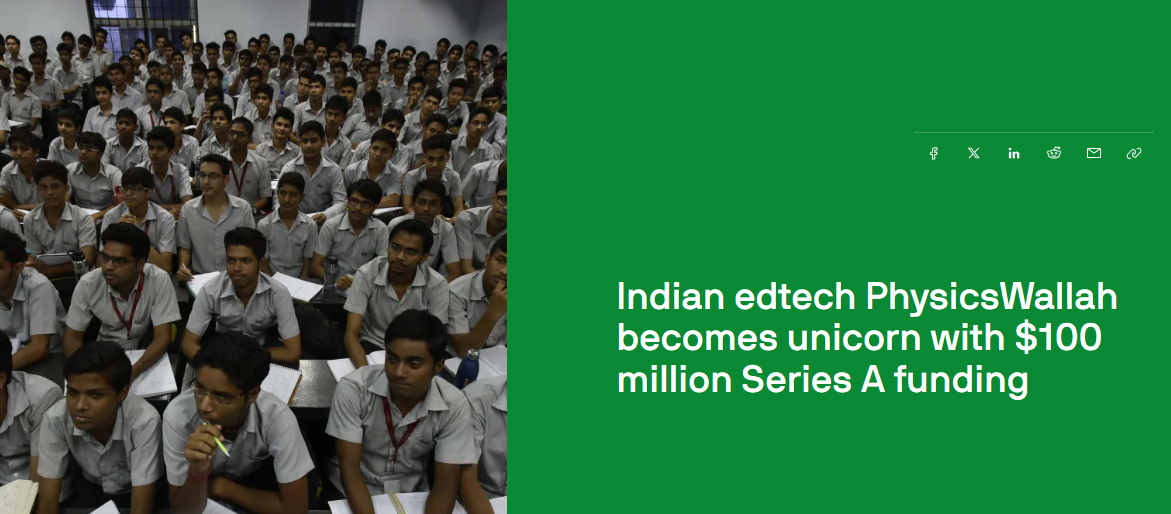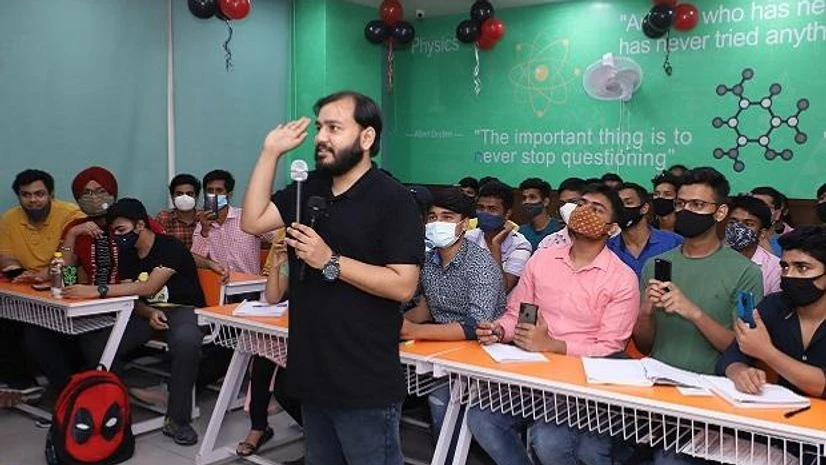
In India, education has always been a high-stakes pursuit. Competitive entrance exams for medicine and engineering determine not only personal futures but also the trajectory of entire families. For decades, preparation was dominated by expensive private coaching institutes clustered in urban centers like Kota and Delhi. When digital disruption arrived, platforms like Byju’s attempted to replicate this model online, offering premium courses at premium prices. Yet the promise of democratized access remained unfulfilled for millions of students from Tier-2 and Tier-3 cities who could not afford these programs.
PhysicsWallah (PW) emerged as the counter-narrative. Founded in 2020 by Alakh Pandey, a former YouTube teacher, PW began with a simple goal: to make quality education affordable and accessible to every student, regardless of geography or income. Its rise coincided with Byju’s mounting financial struggles, creating a striking contrast in business models. By 2025, PW is not only a unicorn but also preparing for a landmark IPO, signaling that affordability-driven scale may be the most sustainable path in India’s edtech sector.

Alakh Pandey’s personal journey remains central to PW’s identity. Known affectionately as “PhysicsWallah” on YouTube, Pandey first gained traction by teaching high school physics with nothing more than a chalkboard and a white shirt. His humble style resonated deeply with students who saw in him not a distant figure but a relatable mentor. This authenticity became the foundation for PW’s rapid adoption.
Joining him is co-founder Prateek Maheshwari, whose expertise lies in building scalable digital products. Together, they assembled a leadership team capable of balancing online and offline operations. The company now employs thousands of educators, content creators, and tech developers, creating a robust ecosystem that can deliver high-quality teaching across multiple platforms. The leadership’s emphasis on culture—mission-driven, student-first, and cost-conscious—has allowed PW to avoid the pitfalls of overexpansion and mismanagement that plagued its competitors.

The origins of PhysicsWallah were modest. Pandey’s free lectures attracted millions of subscribers on YouTube, convincing him there was untapped demand for affordable digital education. In 2020, PW launched its own mobile application, initially offering courses for India’s toughest exams such as IIT-JEE and NEET. The platform quickly scaled to tens of millions of users, driven largely by word of mouth and its reputation for quality at a fraction of market prices.
But PW’s ambitions did not stop online. Recognizing the enduring importance of physical coaching centers in India’s exam culture, the company began opening offline hubs in multiple states. By 2024, these centers had enrolled hundreds of thousands of students, providing face-to-face interaction alongside digital content. This hybrid model gave PW a unique edge, offering both accessibility and credibility.
Today, PW’s empire spans beyond test preparation. It has moved into K-12 tutoring, professional upskilling, government exam preparation, and publishing. The platform has also begun experimenting with AI-driven personalization to improve learning outcomes, showing its readiness to embrace innovation without losing sight of affordability.

PW’s core learners are students from small towns and rural districts, many of whom are first-generation college aspirants. For these students, the cost of traditional coaching—often running into thousands of dollars—was prohibitive. PW’s pricing strategy, offering courses at one-tenth or even one-twentieth the price of competitors, fundamentally changed the equation. Families that once struggled to access even basic guidance could now afford structured, high-quality instruction.
The social implications are profound. By reaching millions of learners outside India’s metropolitan elite, PW has become a powerful equalizer in a country where education remains the ladder to upward mobility. Its model demonstrates that innovation in emerging markets must be as much about affordability and distribution as about cutting-edge technology. For many, PW is not just an edtech company; it is a lifeline to opportunity.

Unlike premium-focused rivals, PW’s business model is built on volume. Its low-cost courses attract a massive user base, creating economies of scale. Additional revenue streams—printed study materials, mock test series, and offline coaching fees—provide diversification. Together, these allow PW to remain profitable even while charging significantly lower prices than competitors.
This strategy has proven more sustainable than growth-at-all-costs approaches. By focusing on value rather than vanity metrics, PW has avoided the heavy losses and down rounds that have shaken the wider edtech industry. Its steady revenues and large paying user base give investors confidence that PW can sustain long-term profitability, even as it moves into new markets and segments.

PhysicsWallah’s fundraising journey illustrates its measured approach. In June 2022, it became India’s 101st unicorn with a $100 million Series A round led by WestBridge Capital and GSV Ventures. This was unusual in a market where startups typically raise multiple rounds before hitting unicorn status. For PW, profitability and strong cash flows allowed it to reach this milestone without excessive dilution.
By 2025, the company has filed draft papers with India’s market regulator SEBI for an IPO estimated at $300 million. According to the Economic Times and Financial Express, the listing will fund offline expansion, AI-driven technology upgrades, and entry into select international markets such as Southeast Asia. The IPO also offers an exit path for early investors, further validating PW’s trajectory. At a time when Byju’s and other edtech firms face valuation cuts and liquidity crunches, PW’s public market entry could reset global investor sentiment toward edtech.

PW’s greatest strength is its alignment of growth with social impact. Its expansion into Tier-2 and Tier-3 cities has created thousands of teaching and administrative jobs, while simultaneously giving students in these regions access to opportunities that were once concentrated in urban hubs. The ripple effects—employment, skill-building, and enhanced community aspirations—extend well beyond the company’s direct customer base.
Although PW does not explicitly market itself as an ESG company, its mission embodies the principles of social sustainability. Affordable education reduces inequality, boosts human capital, and strengthens social infrastructure. By prioritizing accessibility, PW shows that startups can scale responsibly without losing sight of their foundational mission.

The decline of Byju’s has reshaped India’s edtech narrative, creating both challenges and opportunities. For PhysicsWallah, this transition represents a chance to become the sector’s flagship company, demonstrating that profitability and social impact can coexist. Analysts see PW’s IPO as not only a financial milestone but also a symbolic shift toward sustainable models in global edtech.
Looking ahead, PW is poised to expand internationally, targeting emerging markets in Southeast Asia and the Middle East where demand for affordable education mirrors India’s context. If successful, its model could inspire a new generation of edtech companies across the Global South. By combining scale with accessibility, PhysicsWallah is charting a path that proves disruption is not about exclusivity—it is about universality.
From chalkboard lectures on YouTube to a soon-to-be-listed unicorn, PhysicsWallah exemplifies how authenticity, affordability, and scalability can reshape entire industries. Its journey underscores a powerful truth: in education, the real disruption comes not from technology alone, but from the ability to extend opportunity to all. As India redefines its role in the global edtech landscape, PhysicsWallah stands as a case study in how startups can marry growth with impact—and, in doing so, transform societies.
0 Comments